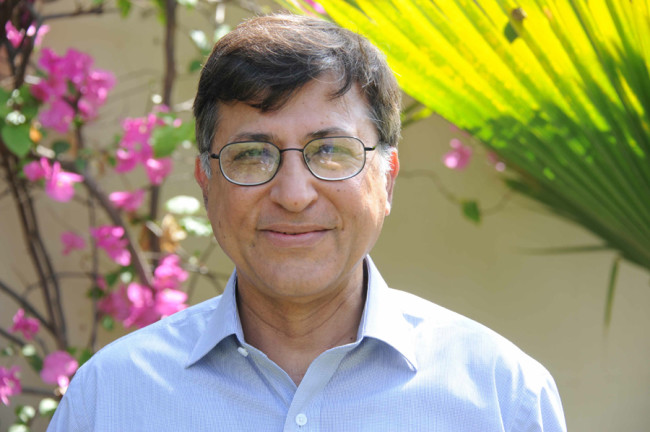
Pervez Amirali Hoodbhoy, renowned nuclear physicist and member on the Advisory Board for Nuclear Disarmamation Matters, appointed by the UN Secretary General, spoke at SMU on Saturday at the Conference on Human Rights: Crisis in South Asia 2014.
The conference was organized by South Asia Democracy Watch (SADEW) in partnership with SMU Embrey Human Rights Program.
The conference was arranged to create awareness on the human rights crisis, particularly religious persecution, in South East Asia, President of SADEW Qaisar Abbas said.
Hoodbhoy said the “biggest threat to Muslims comes not from the west, but [from] themselves,” as there is inter-factional violence.
He said the “process of division is not going to stop, even if it’s a Sunni State” because then there will be a division between the Wahabi’s and Barelvis, for example.
“Living in the U.S., you can practice your religion the way you like,” Hoodbhoy said.
However, the same is not true for most other areas of the world. Hoodbhoy emphasized the idea of separation of church and state, and not governing people from what one interprets as his or her God’s commands.
It is time “apologists for Taliban are told to shut up,” Hoodbhoy said of the of religious persecution by terrorists, advising against any negotiation. “Why should you try to talk to monsters like that?”
Working to alleviating human rights issues partially lies in incorporating human rights education in the overall college course curriculum, according to Rick Halperin, Director of Embrey’s Human Rights Program.
“There are 3500 universities in this country, and only six of them offer a degree in human rights education,” Halperin said. “Human rights should be taught at every school much like biology and mathematics…”
We have a responsibility to educate young people, said Andrea Pearson-Haas, director of operations at the Bakhta Foundation — a nonprofit working to educate underprivileged youth in Pakistan.
“Education is not just about sitting in a classroom and reading a book, but it is gaining the ability to interact with the community, and one thing students can do is attend informative conferences like these,” Pearson-Haas said.
According to speakers, students lay at the heart of fixing the issues.
“Young people must have their voices heard,” Hoodbhoy said.










